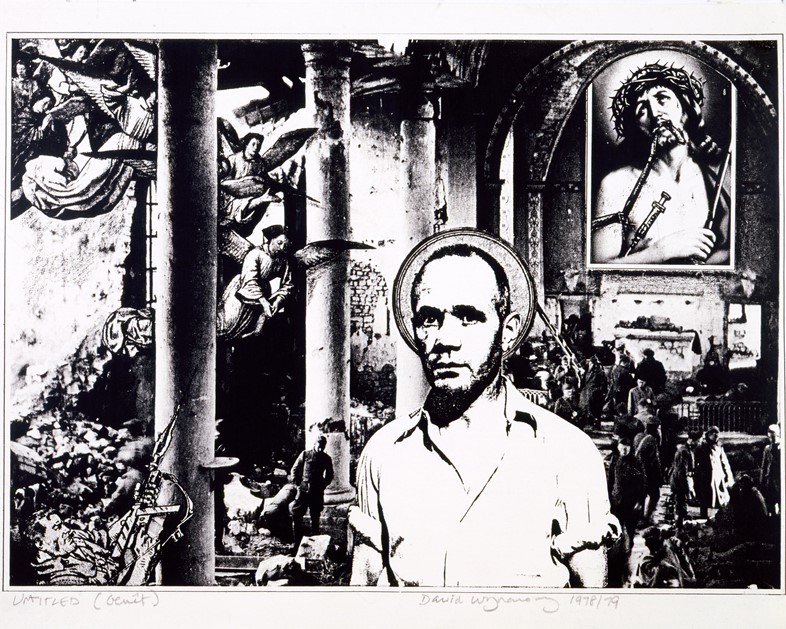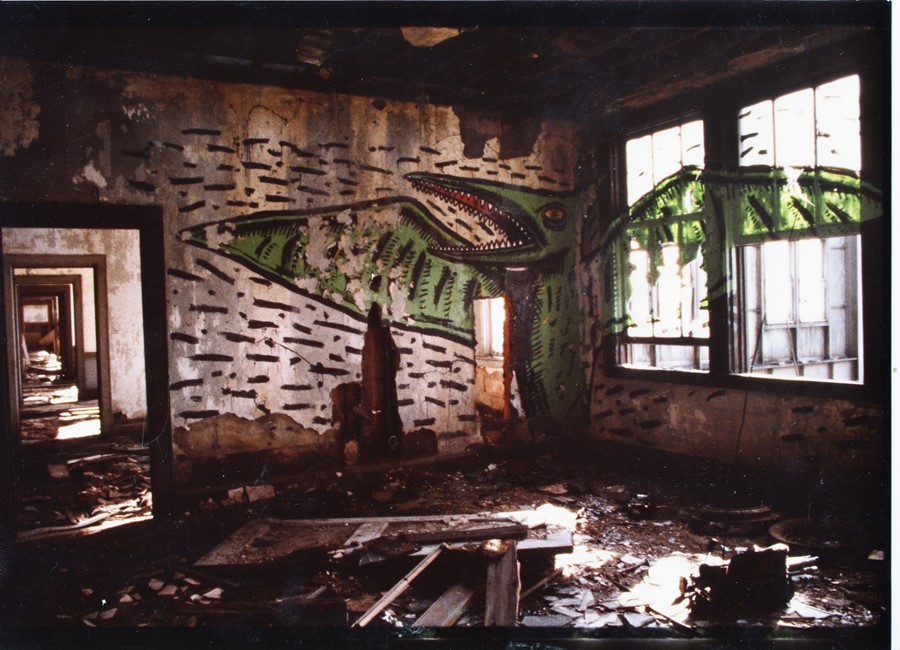“My eyes have always been advertisements for an early death”: a newly re-published book documents the lost souls the New York artist encountered on the streets
David Wojnarowicz was born out of New York’s fevered 1980s East Village art scene, along with the likes of Nan Goldin, Jean-Michel Basquiat and Keith Haring. His life was cut short in 1992 when he died as a result of AIDS-related complications at the age of 37 – but despite its brevity, he left behind a considerable body of extraordinary work, spanning painting, photography, writing and activism.
As a teen runaway fleeing a violent and dysfunctional homelife, Wojnarowicz spent most of his adolescence destitute on the streets of New York, enduring much of the same abuse and neglect he’d fled home to escape from. He was beaten, assaulted, sleep-deprived and starving, risking mortal danger every time he sold his body on Times Square. Still, the streets held a certain fascination for Wojnarowicz; some of his most beautiful writing was inspired by the years he spent living lawlessly and transiently on them. He felt aligned with other outsiders, and was often drawn back to spend time among the dispossessed, cruising for sex and creating art in the derelict spaces of the Chelsea Piers by the banks of the Hudson River.
The Waterfront Journals gives voice to some of the people Wojnarowicz encountered during his time sleeping rough. These fictional monologues create a kind of fractured mosaic of life on the margins during late 1980s America. “David Wojnarowicz has caught the age-old voice of the road,” said William S Burroughs. “The voice of the traveller, the outcast, the thief, the whore…”
“The cruelty of the world is visited upon David Wojnarowicz’s characters,” writes Philip Hoare in his introduction to The Waterfront Journals. “They are what the ‘straight’ world has dumped over a fence.” In the following extract, a young boy – a self-confessed ‘wolf child’, made feral by his sense of utter alienation – offers us a glimpse of what the world looks like from the other side of that fence.

“I’m still a piece of meat like something in the Fourteenth Street markets swinging from stinking hooks in the blurry drag queen dusk. Maybe a hundred dollars to my name, no place to live, and I can’t hustle anymore. I’m trying to keep my body beyond the deathly fingers of my past but I’m fucked up bad never learned shit, how to create structures other than chaos. I’m attracted to chaos because of all the possibilities and I don’t have to choose any of them or die frozen inside one but right now all I know is that I am tired, bone and brain tired. I woke up in this guy’s bed in the middle of the night and realized not a whole lot had changed since I got off the streets. He was an alcoholic doctor I’d known on and off over a handful of years and he let me live with him for the last couple of weeks cooking me upper-class meals in return for me fucking him legs over my shoulders like a video stud. He could have gone on forever like this but the distinct sensation of being made of glass, of being completely invisible to him, was growing and curving like a cartoon wave. I feel so fucking dark I don’t even have the energy to throw myself off a building or bridge. Now he’s starting to come home slamdown drunk banging into walls moaning and crying falling down murmuring: Fuck me my lovely. I told him one night he needed some help and he responded by bringing home a hustler from West Street and I ended up sleeping on the living room floor.
~
“I got close to the water’s edge when an old ghost of a man materialized with his open palms stretching out towards me. I heard a murmur: Want some action? I turned and walked to the opening of the bay along the coastline, climbing the boulders to the back end of the parking lot. Walking to the bench area two local toughs: Hey yo! came up fast behind me their arms dangling at their sides like whirligigs. Both were kind of sexy but dangerous. One guy with close-cropped hair and a red face said: Any women out here tonight? Then they came up on me on both sides spinning their heads from looking for witnesses. I became as charming as possible: Cigarette? As they took one a car spun in the lot illuminating all of us and I took that moment to tip towards the headlights and lose myself among the parked cars.
~
“Sometimes I wish I could blow myself up. Wrap a belt of dynamite around my fucking waist and walk into a cathedral or the Oval Office or the home of my mother and father. I’m in the last row of the bus, the seven other passengers are clustered like flies around the driver in the front. I can see his cute fuckable face in the rearview mirror. I lean back and tilt my head so all I see are the clouds in the sky. I’m looking back inside my head with my eyes wide open. I still don’t know where I’m going; I decided I’m not crazy or alien. It’s just that I’m more like one of those kids they find in remote jungles or forests of India. A wolf child. And they’ve dragged me into this fucking schizo-culture, snarling and spitting and walking around on curled knuckles. They’re trying to give me a damp mattress to sleep on in a dark corner when all I really want is the rude perfume of some guy’s furry underarms and crotch to lean into. I’ll make guttural sounds and stop eating and drinking and I’ll be dead within the year. My eyes have always been advertisements for an early death.”
The Waterfront Journals by David Wojnarowicz, featuring an introduction by Philip Hoare and and afterword by Olivia Laing, is available for pre-order now, published by Peninsula Press.
